Now is the winter of our discontent
Made glorious summer by this son of York
I write this from a warm little room at the back of the house, looking down on a frosty garden. When we moved in last month, the distant willow tree at the end of the garden was full and green. Winter has stripped it bare. What lifeforms remain are huddled closely together, seeing off the ice wind.
It's a good time for tea. Just yesterday, an important moment: we laid out the tea-table in the corner of the lounge, interrupting its month-long sleep in the packing boxes used to move house. When the tea-table is set up, the house becomes a home.
It's also a good time for tea because it's the Saturday morning after the annual party in my college (nominally in celebration of the saint from which it takes its name). It is the day of the year when the tutors get "in the trenches" and dine with the undergraduates, then head to the bop afterwards. Invariably, this means a hangover is waiting in the wings - but, crucially, it has not yet struck. With the correct action, the hangover can be avoided, and pu'er is my secret weapon.
With appropriate measures, hangovers can be made a thing of the past. Tactics include taking water before bed (easy to forget, given how attractive a warm bed looks at the end of an evening), taking a little water whenever the body wakes, having a proper, cooked breakfast to replace depleted minerals, and then: pu'er.
Pu'er makes the difference. With it, the day is sweet and charming. Without it, the late-morning ache can make itself felt. It's an academic's best friend.
To celebrate the first session in the new house, the 2008 Yongpinhao "Lingbo Qingdai" [towering-wave, cyan-ribbon], sold by Yunnan Sourcing under the name "Stone-Pressed Yiwu". I fell for this tea on seeing the wrapper, which reminded me of an old painting of my own from a few years back:
What's special about this tea? The leaves were stoned-pressed in a large stone vessel, which makes for a pleasant compression that is tight enough to retain its integrity, yet loose enough to make separation of the leaves possible. What pretty leaves they are, too, being very well-handled and consequently undamaged, among the first flush from Mengla, the tea county in Xishuangbanna to the east of the Lancang that contains many of the familiar tea mountains.
No hydraulics, and also no industrial shaqing [kill-green]: the leaves were allegedly all wok-fired in small batches. I appreciate the nod to tradition.
Such lovely leaves, and yet with a fine aroma. Often, I worry about pretty leaves, wondering if they will exhibit the complexity that I look for in good pu'er. Sometimes, a vendor will concentrate on the appearance of the cake to the detriment of its character - the 2002 Fuchaju "Ailaoshan" and 2008 Puerh Shop "Meiguohao" are two examples that spring immediately to mind. It is not sufficient merely to find a single, good maocha, and gently squish it into bingcha - the blend is critical in order to obtain some decent complexity, and here the Yongpinhao has done well.
The leaves are a touch orange, when seen in day-light, and this gives me initial concerns about "tweaking" - being that crafty processing (perhaps a little pre-shaqing oxidation, or post-compression baking) often used to attenuate bitterness and promote tobacco-style hongcha flavours. My fears are calmed by the presence of a strong "green" aroma, and plenty of sweetness, which leads me to hope that nothing untoward has been done to this tea.
The brew is decent - with a good quantity of leaves, quite a punch is delivered, quashing concerns of dodgy processing. Notes of heather and other hardy flowers linger in the nose, which combine with a base tobacco character that appeals to me very much.
"Very delicate! The tenderness has not been killed." Lei takes a quick cup as she flits between Busy and Important home improvements.
This tea benefits from the use of lots of leaves and very short infusions. In my original sample, I was too conservative. Getting this tea to perform properly is not trivial, but worthwhile when the right balance is found. I was nearly turned off it by my initial experiments, and am glad to have coaxed the best out of it, because the results are very pleasant.
For £12, this was an inexpensive treat, and a lovely way to start a new stage in our tea-life.

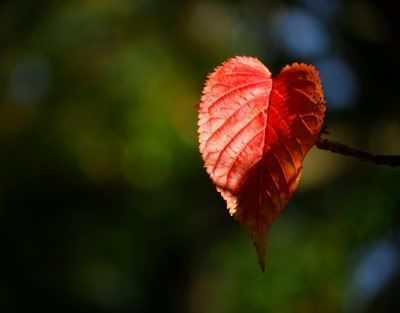
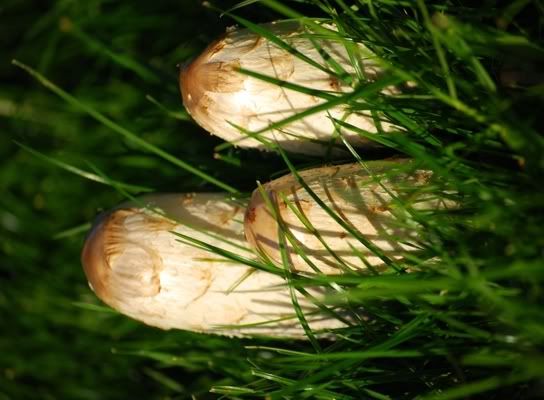

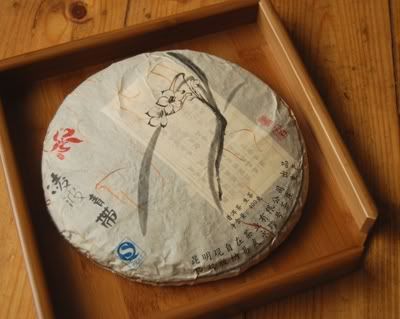
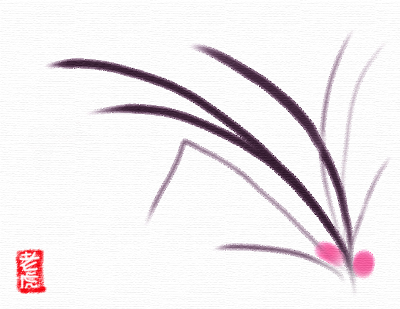
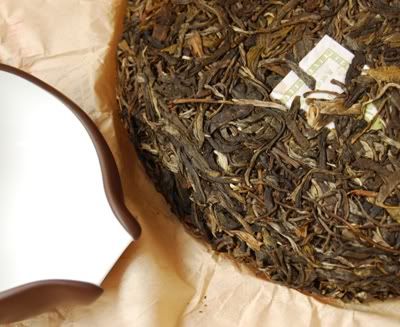
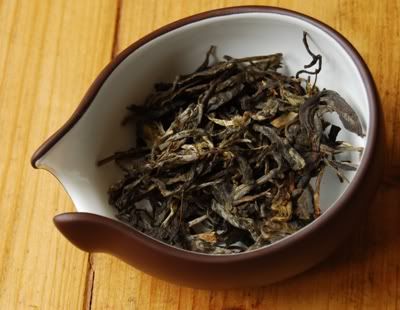
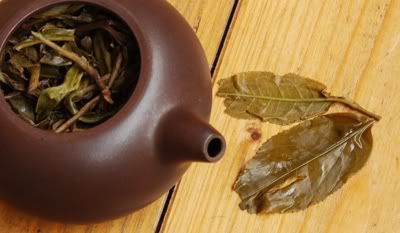
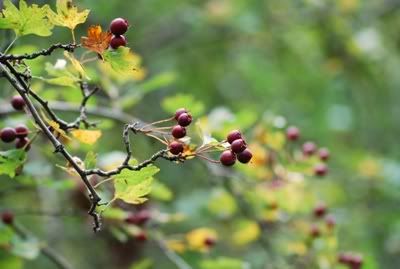
6 comments:
I bought a lot of this tea blind, and hoped it would be good. After looking at / smelling the cake, I was excited, but also nervous that the tea wouldn't actually taste good. I wasn't disappointed at all, though... I think this is a very pleasant tasting cake, maybe one of the nicer young cakes I've tried, and it's fairly reasonably priced for a stone-pressed, smaller production cake with leaves this nice looking.
Will, you're a brave man! I'm terrified to buy anything blind, just in case it ends up sitting untouched on my shelves for the rest of eternity. I'm happy to hear that this one worked out for you - it is a pleasant little number.
Lei and I were trying to imagine how it would age. The delicacy of the floral characteristics might not last - I seldom come across an aged tea that has such a character. However, I liked the dense base that it all sits on - I look at older cakes in my collection that have similar, but more mature, characteristics, and I wonder if this bing will tend towards the same.
Just as you say, for an "artisan" bing, it's a good price. Of course, I would always counsel readers not to expect miracles at such an inexpensive price, but it is nice. :)
Toodlepip,
Hobbes
I notice in your notes you say this is composed of Mengla leaves, but sold by Yunnan Sourcing as "Stone Pressed Yiwu" - is this some mistake?
Welcome, Anonymous One!
Though I only have the blurb to go on regarding this tea's provenance, they do claim it to be comprised of Yiwu leaves, which processes material from the surrounding Mengla county. I didn't get much Yiwu out of it, unsurprisingly!
Hello There, Hobbes.
I just finished a session with this tea and didn't find it to be quite the same. I understand that teas age, however. About how many grammes were you using for a more flavorful brew? I used a little over five and didn't get much flavor from it.
Thanks! :)
Mr. Cha
Dear Mr. Cha,
It's always tricky finding the right balance of leaf to pot, and it depends heavily on your brewing style.
I use a 120ml pot, and so use 10g of leaf. The first three or four infusions are usually water-in, water-out - don't leave them to brew, otherwise it'll get bitter.
Add more or less leaf depending on how potent you think the tea likely to be. I find that "orange" teas are impotent, and need quite a lot of leaf to get a good flavour, and are also very hard to overbrew. They're basically pu'er for beginners. On the other hand, dazzlingly yellow raw shengpu can be very potent, and very easy to overbrew, so I use a little less leaf.
Certainly, for my brewing method, 5g of leaf is far too little for all types of pu'er.
Experiment and let us know what works for you!
Toodlepip,
Hobbes
Post a Comment